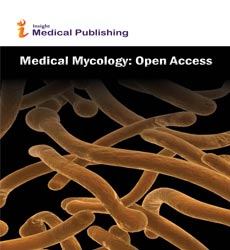Abstract
AM Fungi and their role in Plant Parasitic Nematodes Management
Arbuscular mycorrhizal fungi (AMF) are obligate root symbionts that can protect their host plant against biotic stress factors such as plant-parasitic nematode (PPN) infection. PPN consist of a wide range of species with different life styles that can cause major damage in many important crops worldwide. Various mechanisms have been proposed to play a role in the biocontrol effect of AMF against PPN. This review presents an overview of the different mechanisms that have been proposed, and discusses into more detail the plausibility of their involvement in the biocontrol against PPN specifically. The proposed mechanisms include enhanced plant tolerance, direct competition for nutrients and space, induced systemic resistance (ISR) and altered rhizosphere interactions. Recent studies have emphasized the importance of ISR in biocontrol and are increasingly placing rhizosphere effects on the foreground as well, both of which will be the focal point of this review. Though AMF are not yet widely used in conventional agriculture, recent data help to develop a better insight into the modes of action, which will eventually lead toward future field applications of AMF against PPN. The scientific community has entered an exciting era that provides the tools to actually unravel the underlying molecular mechanisms, making this a timely opportunity for a review of our current knowledge and the challenges ahead.
Author(s):
Rizwan Ali
Abstract | PDF
Share this

Google scholar citation report
Citations : 164
Medical Mycology: Open Access received 164 citations as per google scholar report
Abstracted/Indexed in
- Google Scholar
- China National Knowledge Infrastructure (CNKI)
- Directory of Research Journal Indexing (DRJI)
- WorldCat
- Publons
- Geneva Foundation for Medical Education and Research
- Secret Search Engine Labs
Open Access Journals
- Aquaculture & Veterinary Science
- Chemistry & Chemical Sciences
- Clinical Sciences
- Engineering
- General Science
- Genetics & Molecular Biology
- Health Care & Nursing
- Immunology & Microbiology
- Materials Science
- Mathematics & Physics
- Medical Sciences
- Neurology & Psychiatry
- Oncology & Cancer Science
- Pharmaceutical Sciences
